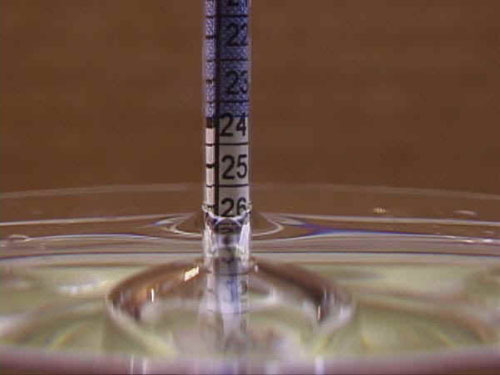Randy Holmes-Farley
Reef Chemist
View Badges
Staff member
Super Moderator
Excellence Award
Expert Contributor
Article Contributor
R2R Research
My Tank Thread
- Joined
- Sep 5, 2014
- Messages
- 67,311
- Reaction score
- 63,658
Reef Chemistry Question of the Day [HASHTAG]#160[/HASHTAG]
The picture below is a picture I took of a floating hydrometer in tank water.
Which value is closest to the correct specific gravity reading of this hydrometer?
A. 1.0255
B. 1.0261
C. 1.0265
D. 1.0271

Good luck!
.
The picture below is a picture I took of a floating hydrometer in tank water.
Which value is closest to the correct specific gravity reading of this hydrometer?
A. 1.0255
B. 1.0261
C. 1.0265
D. 1.0271

Good luck!
.
Last edited:

















